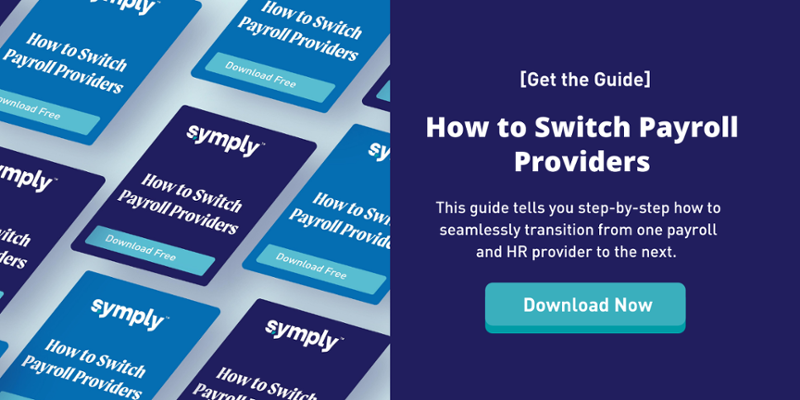HR News & Education
Check out the latest news and resources for small businesses covering topics such as human resources, employee engagement, and management.
How to Pay Yourself as an LLC

Many new business owners have something in common: They're not sure how or when to pay themselves as the company owner. But, hey, if this is a problem, it's a good one to have. Perhaps you're used to the role of an employee where your paycheck magically lands in your bank account. (Hint: it can work that way for you now too.)
While your business is getting up and running, paying yourself may slip your mind. Or, maybe you don't have the funds yet, and you must use personal savings until you do.
Paying yourself consistently and on time as an LLC isn't about waiting until you hit a revenue goal. Instead, pay yourself what you can and when you can.
Let's start with the basics.
First, there are two ways to pay yourself as an LLC:
- Owner's Draw: Withdraw money from your LLC by writing yourself a check or scheduling a bank transfer.
- Payroll: Pay yourself a reasonable salary with payroll taxes withheld.
What's an owner's draw?
An owner's draw happens when you're a single-member LLC, which means you qualify as a disregarded entity. The IRS sees you and your business as the same in terms of taxes.
Typically, business owners take an owner's draw by writing a check or scheduling an electronic transfer from their business to their personal bank account.
What’s payroll?
With payroll, you'll use a service like Symply to process paychecks and file payroll tax forms with your state and the federal government.
We recommend using a full-service payroll provider that not only calculates your payroll taxes but files the forms for you. (We're pretty sure you don't want to do this, just sayin'.)
With payroll, you earn a wage with payroll taxes withheld. This happens if you choose to have your LLC taxed as a corporation, an S-corp, or a C-corp.
Like other employees on salary, you'll have to pay payroll taxes, such as income tax, social security, and medicare. These are deducted from each paycheck you receive.
Talk with your CPA to understand the tax advantages and disadvantages for your business and personal tax strategy.
Learn how to set up payroll in 9-steps here.
What if you don't pay yourself?
If you’re a non-incorporated LLC, the revenue you haven't taken stays invested in your business' operational expenses. You'll still pay income taxes on your profit because this amount passes through to your personal income tax return.
When it comes to paying yourself, you may have questions like:
- How much should I pay myself?
- When's the best time to do it?
- How frequently should I pay myself?
- Do I need to be on payroll right away?
These are all essential questions to ask as you get up and running, and we have the answers for you below.
How much should I pay myself?
Your lifestyle, personal financial goals, debt payment goals, and other factors determine how much you should pay yourself.
When's the best time to pay yourself?
You could pay yourself on the 1st, the 15th, the last day of the month, or any other day that works for you and your budget.
How frequently should I pay myself?
Standard payroll processing periods are weekly, bi-weekly, bi-monthly, or monthly.
Consider when your personal bills are due, how long it takes for the payments to get to your vendors, and what type of savings goals you have.
Do I need to be on payroll right away?
Not necessarily.
If you're an LLC that has not filed a corporate election, you are not required to take a salary through payroll.
However, once you file a corporate election, you must take a reasonable salary through payroll. You can determine this amount with your CPA or by using an estimator like the one on Salary.com.
If you can't pay yourself right now, it's worth reviewing your financials with your financial team to see how you can streamline cash flow and pay yourself the most you can.
Check out these top tips for choosing a payroll provider.
A little more on paying yourself...
Cash flow can become unpredictable when billing terms aren't clear. If this is the case for you, make it easy for clients to pay you using an online payment processor.
When you start to pay yourself, have a solid paper trail of transactions.
Keep savings of 10-30% of revenue for additional tax payments. Your CPA can tell you exactly how much to put aside based on your tax filing history and current financials.
Payroll records should be kept for at least six years.
Below is a summary of the tips shared, so you feel like you’ve got the whole paying yourself thing under control. (What a great place to be!)
Six tips on paying yourself as an LLC
- Review your personal budget to know the best time to pay yourself, so your bills are paid when due.
- Make it easy. Schedule owner's draw transfers automatically, so you're not doing the heavy lifting to get paid.
- Keep an eye on Accounts Receivables (A/R). Be sure your clients pay on time because it can throw your cash flow off and leave you scrambling when they don't. As part of your A/R workflow, it's crucial to have a follow-up and debt collections strategy in place, just in case.
- Know your billing terms. If client payments are due on a Net 30 basis, consider shortening that window of time so cash flow stays predictable.
- Speak with your CPA about when you might want to file a corporate election for your LLC. This is when you'll also start taking a reasonable salary through payroll.
- Choose a full-service payroll provider with a support team that can guide you through the complexities of payroll processing and tax filing. We're here when you need us.
There you have it! Now you can pay yourself as an LLC with confidence.
Symply is used by trusted brands all over the US. Get access to payroll and HR tools that free up your time so you can work on growing your business on your terms.
Click here to contact our team and get started today.

